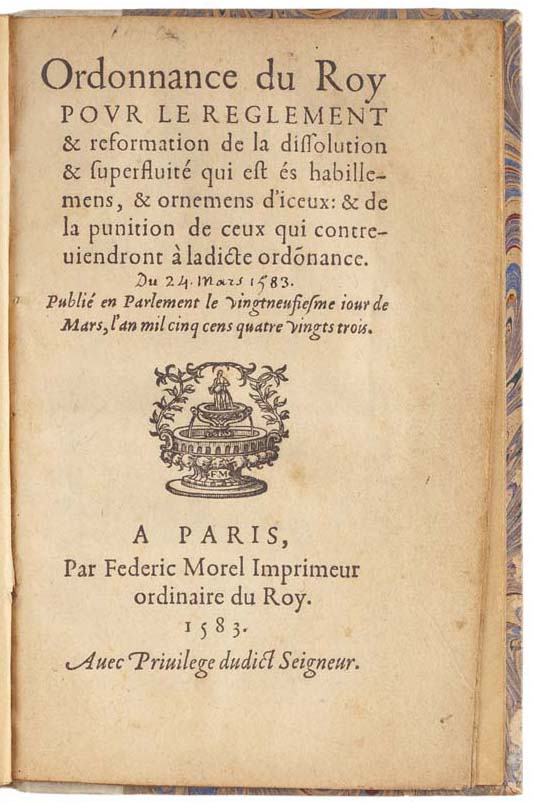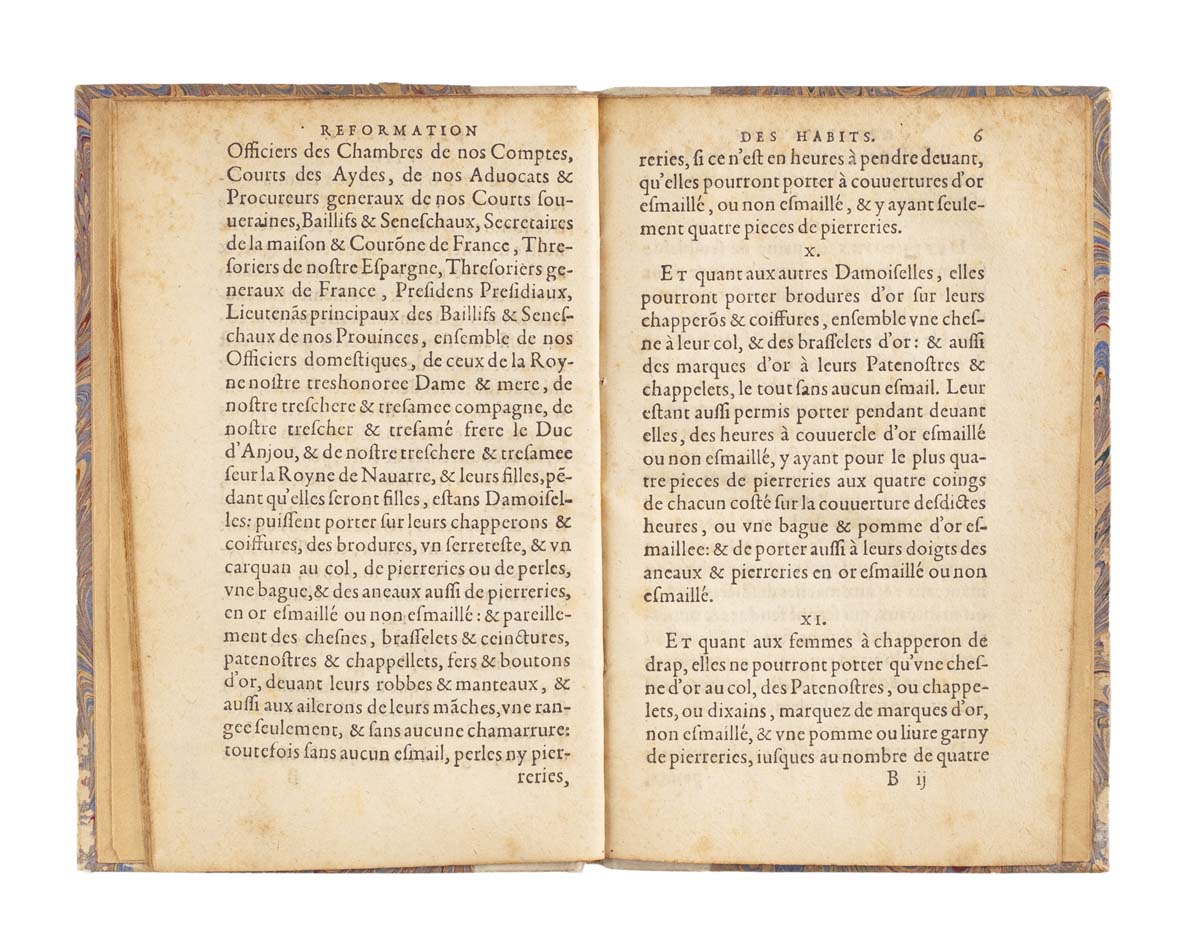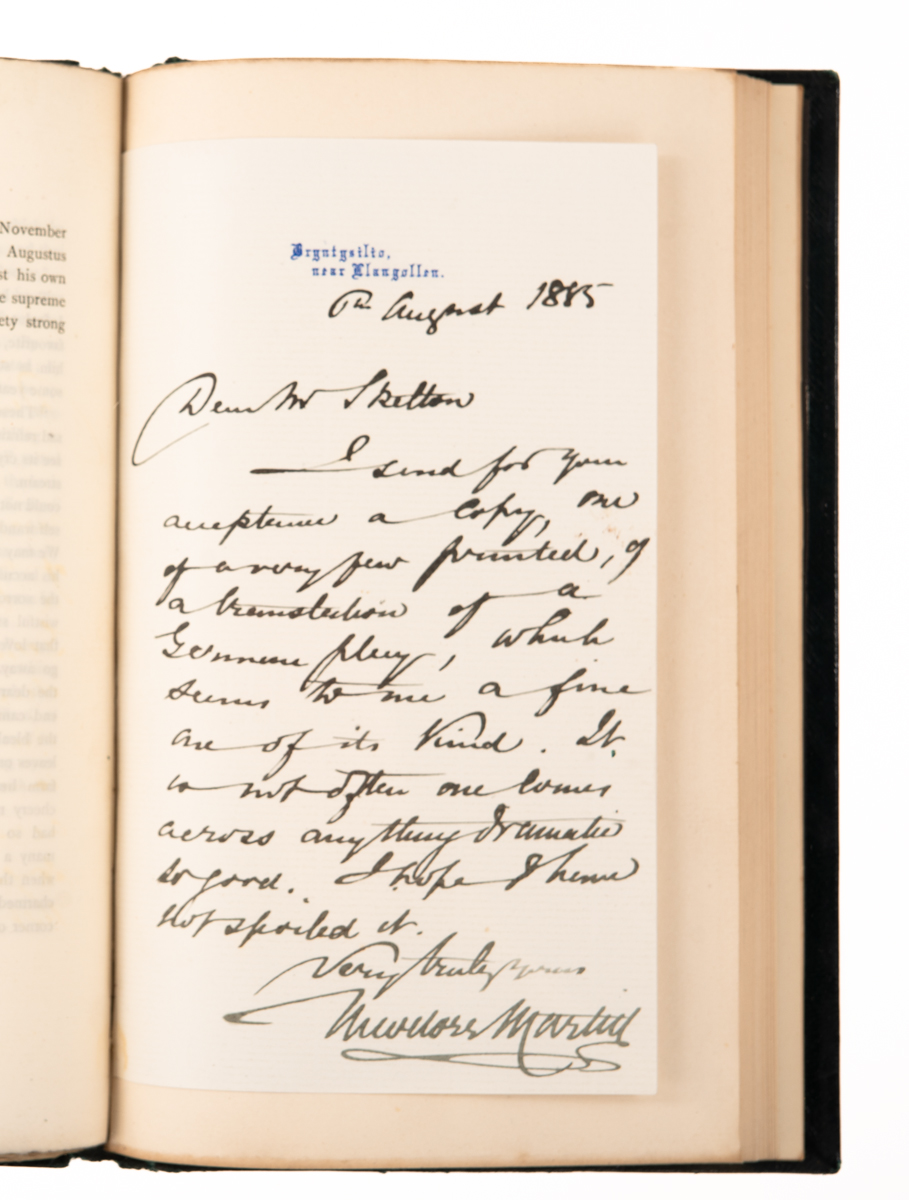

[DRESS – SUMPTUARY LAW.]
Ordonnance du Roy pour le reglement & reformation de la dissolution & superfluité qui est és habillemens, & ornamens d’iceux: & de la punition de ceux qui contreviendront à ladicte ordo[n]nance. Publié en Parlement de vingtneufiesme jour de Mars, l’an mil cinq cens quantre vingts trois.
Paris, Federic Morel, 1583.
8vo, ff. 8; date of ordinance in ink in later hand on title-page; woodcut headpiece and initial; some browning throughout; blindstamp exlibris mark “R” on front free endpaper; in later vellum-backed marbled boards, gilt red morocco lettering-piece to spine; minor wear.

Added to your basket:
Ordonnance du Roy pour le reglement & reformation de la dissolution & superfluité qui est és habillemens, & ornamens d’iceux: & de la punition de ceux qui contreviendront à ladicte ordo[n]nance. Publié en Parlement de vingtneufiesme jour de Mars, l’an mil cinq cens quantre vingts trois.
A rare example of one of the early attempts by the French authorities at sumptuary law relating to clothing, prohibiting the wearing of certain types of adornment and dress by the vast majority of the population. Similar prohibitions had been made by Henri III’s predecessors, and one of his first acts was to enforce these before proposing more, firstly in 1577 and finally the present ones in 1583; more were issued under Louis XIII in 1629 and 1633, although in all cases (as might be imagined from the repeated attempts) they were barely enforced and hardly observed.
Building on previous ordinances, the present document prohibits the wearing of precious stones and pearls on garments, except for princes; velvet, satin, damask, and taffeta were all permitted, but with no adornment more elaborate than a silk lining, while there was a ban on gold and silver embroidered bands. A modern reader, tempted into the thought that these laws were designed purely to keep the lower classes in their place for the sake of the upper classes, will be reassured to know that it is in fact for the sake of God, who is ‘grandement offensé’ by His inability today to recognise the ‘qualitez & conditions des personnes, pour le peu de difference qui est és estoffes, valeur, & sumptuosité de leurs vestemens’.
OCLC records three copies, at Kansas, Michigan State, and the Institut de France.

